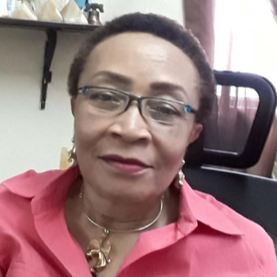Amam Mbakwem
Candidate for Vice President-Elect

Amam Mbakwem
Nigeria
Biography
My name is prof Amam Mbakwem, Consultant cardiologist and lecturer at the Department of Medicine, College of Medicine, University of Lagos, Nigeria.
I am a current board member of the WHF, Vice president Pan African Society of Cardiology (PASCAR) where I had served as the treasurer. I am also the immediate past president of the Nigerian Cardiac Society.
I would want to serve as the vice-president supporting the president in achieving the goals and aspiration of the WHF – cardiovascular health for all. I also serve on the advisory committee for the world heart day campaign.
I have been an active participant in the WHF programs and events (WCC, global summit which I once co-chaired) and world heart day celebrations).
I am a woman and I practice in Africa and one of my research interests is CVD in women. It is common knowledge that CVD spectrum, outcome and management is different across the globe from the high income to low and middle income in addition to inequities in CV healthcare deliveries. There is also diversity in CVDs and its outcomes in women throughout the spectrum of a woman’s life in a women. I believe I am in good position to bring to the conversation experiential knowledge concerning issues around CVD in LMIC members of the federation and gender issues . These are two vital aspect of CVD that must be critically reviewed and addressed if WHF is to achieve its vision of “Cardiovascular health for everyone”.
I am also willing to support the president in the completion and evaluation of the 2020-2023 strategic plan and the drafting of a new plan which is imperative with the changing landscape of emerging and re-emerging diseases, global warming, political and global economic crises. While the WHF focuses on addressing these issues and being the global voice for the CV community, emphasis must be laid n health equity to ensure that the most disenfranchised members of our community are heard, understood, assisted and equipped to deal with the challenges of CVD whilst going through the epidemiological transition.
The impact of these environmental and socioeconomic issues is actually worse.